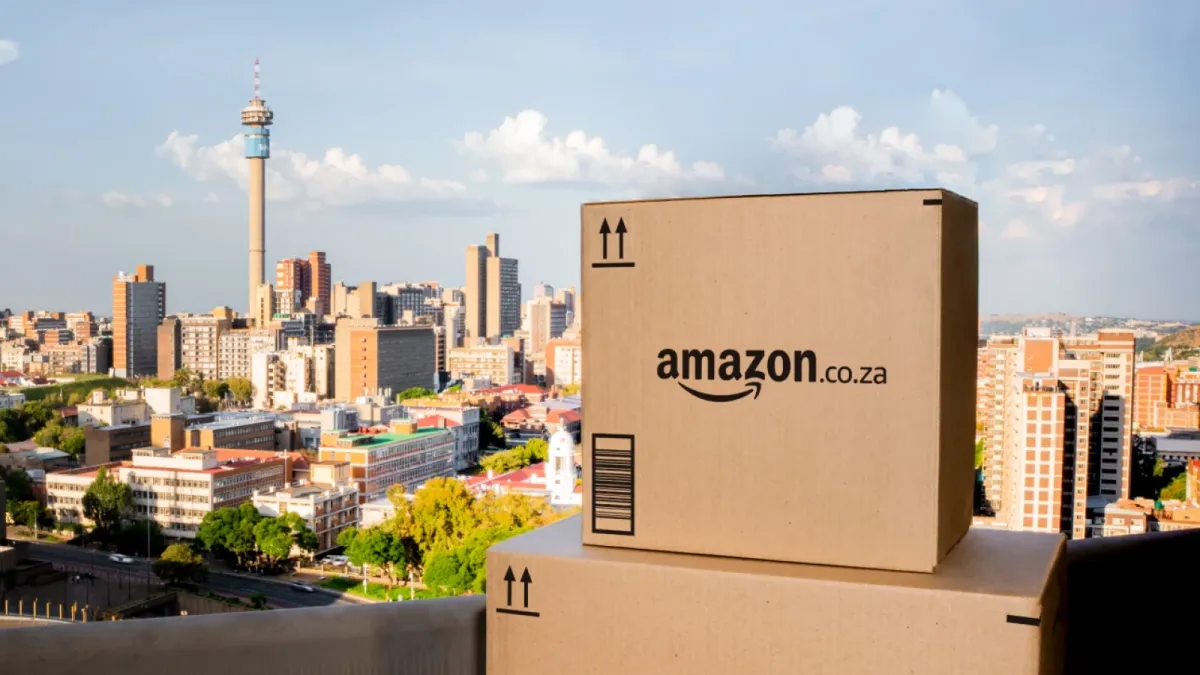
Amazon yesterday officially entered the South African e-commerce market with the launch of amazon.co.za. This move marks a significant development in the country's digital commerce landscape, potentially offering both benefits and challenges for consumers and local businesses.
Extensive Product Selection: Customers can browse a wide variety of products across 20 categories, including local and international brands. This includes popular names like Apple, Sony, and LEGO, alongside South African favorites such as Amanda-Jayne and King Kong Leather.
Competitive Pricing and Delivery: Amazon promises competitive pricing and fast delivery options, including same-day and next-day delivery for eligible orders. Customers also benefit from free delivery on their first order and subsequent orders exceeding R500 (around $27 USD).
Convenient Shopping Experience: The platform offers a user-friendly experience accessible via desktop browsers, mobile browsers, or the dedicated Amazon Shopping app. Features like order tracking with WhatsApp updates and hassle-free returns with various options (home pickup, self-drop) aim to streamline the shopping process.
Support for Local Businesses: Amazon.co.za provides a platform for South African businesses of all sizes to sell their products alongside established brands. The company offers sellers various tools and resources, including onboarding assistance, payment processing solutions, marketing features, and sales analytics.
Impact on South African consumers
Increased Choice and Competition: The arrival of Amazon.co.za potentially introduces greater product variety and competitive pricing for South African consumers. This could lead to a more dynamic and potentially more affordable online shopping experience.
Convenience and Efficiency: Amazon's established infrastructure and focus on user experience might translate to a more streamlined and convenient online shopping experience for South African consumers. Services like fast delivery options and easy return processes could benefit customer satisfaction.
Potential Job Creation: The growth of e-commerce often leads to an increase in jobs related to logistics, warehousing, and customer service. Amazon's entry into the market could create new employment opportunities within these sectors.
Considerations and Challenges
Impact on Local Retailers: Brick-and-mortar retailers and smaller online businesses might face increased competition from Amazon, potentially impacting their sales and market share.
Data Privacy Concerns: As with any large e-commerce platform, data privacy remains a concern for some consumers. Understanding how Amazon handles user data and adhering to local regulations will be crucial for building trust with South African shoppers.
Labor Practices: Scrutiny surrounding Amazon's labor practices in other countries might carry over to the South African market. Ensuring fair treatment and working conditions for employees within its operations or those of its partners will be important.
The launch of Amazon.co.za represents a significant development for South Africa's e-commerce landscape. Increased competition, wider product selection, and potentially improved customer service could benefit consumers. However, potential challenges regarding local businesses, data privacy, and labor practices require careful consideration and responsible management by Amazon. The long-term impact of Amazon's entry on South Africa's online shopping experience will depend on how effectively the company addresses these concerns while fostering a competitive and sustainable e-commerce environment.

